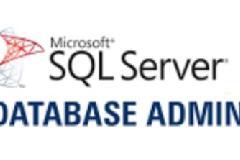Module 1: Introduction to SQL Server
- Overview of SQL Server
- Installing and configuring SQL Server
- Connecting to SQL Server with Management Studio
Module 2: Introduction to T-SQL
- Data types and variables
- Operators and expressions
- Control flow statements
- User-defined functions
Module 3: Data Definition Language (DDL)
- Creating and modifying tables
- Creating and modifying indexes
- Creating and modifying views
- Creating and modifying stored procedures
Module 4: Data Manipulation Language (DML)
- Inserting, updating, and deleting data
- Selecting data from tables
- Joining tables
- Subqueries
Module 5: Data Control Language (DCL)
- Granting and revoking permissions
- Creating and managing users
- Implementing security policies
Module 6: Performance Optimization
- Indexing for performance
- Query optimization techniques
- Performance monitoring and troubleshooting
Module 7: Transaction Management
- Introduction to transactions
- Implementing transactions
- Troubleshooting transaction errors
Module 8: Database Administration
- Backing up and restoring databases
- Monitoring SQL Server performance
- Troubleshooting SQL Server issues
Module 9: Advanced Topics
- Full-text search
- Replication
- Data warehousing
- Business intelligence
Microsoft SQL Server (MSSQL) is a relational database management system (RDBMS). It is a software product that stores and retrieves data as requested by other software applications. It is one of the most popular RDBMSs in the world, and it is used by businesses of all sizes.
MSSQL is a powerful and versatile tool that can be used for a variety of purposes, including:
- Storing and managing data for business applications
- Analyzing data for business intelligence and reporting
- Developing web applications
- Integrating with other Microsoft products, such as Microsoft Office and Microsoft Dynamics
MSSQL is a complex product, and it can be difficult to learn. However, there are many resources available to help you learn MSSQL, including books, websites, and online courses.
Here are some of the benefits of using MSSQL:
- It is a powerful and versatile tool that can be used for a variety of purposes.
- It is a popular RDBMS, so there is a large community of users and support available.
- It is easy to learn and use, especially if you are already familiar with Microsoft products.
Here are some of the drawbacks of using MSSQL:
- It is a proprietary product, so it can be expensive to license.
- It can be complex to learn and use, especially if you are not already familiar with RDBMSs.
- It is not as open-source as some other RDBMSs, so there is less flexibility in how you can use it.
Overall, MSSQL is a powerful and versatile tool that can be a valuable asset for businesses of all sizes. However, it is important to consider the costs and benefits of using MSSQL before making a decision.






